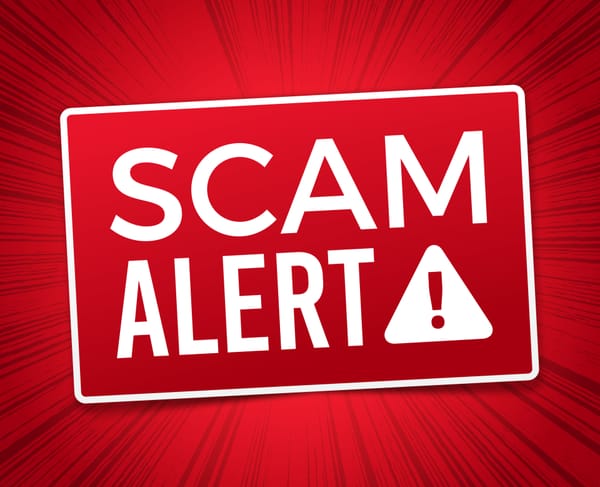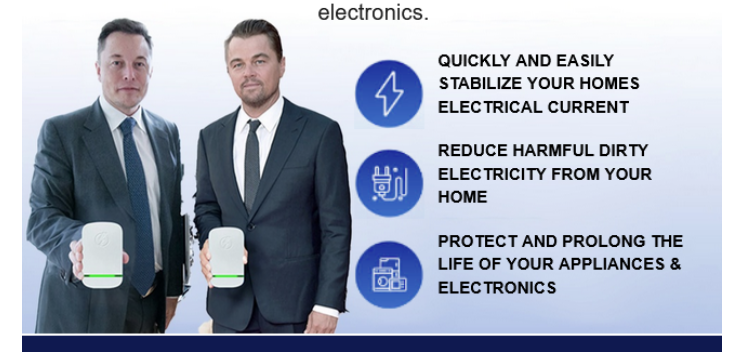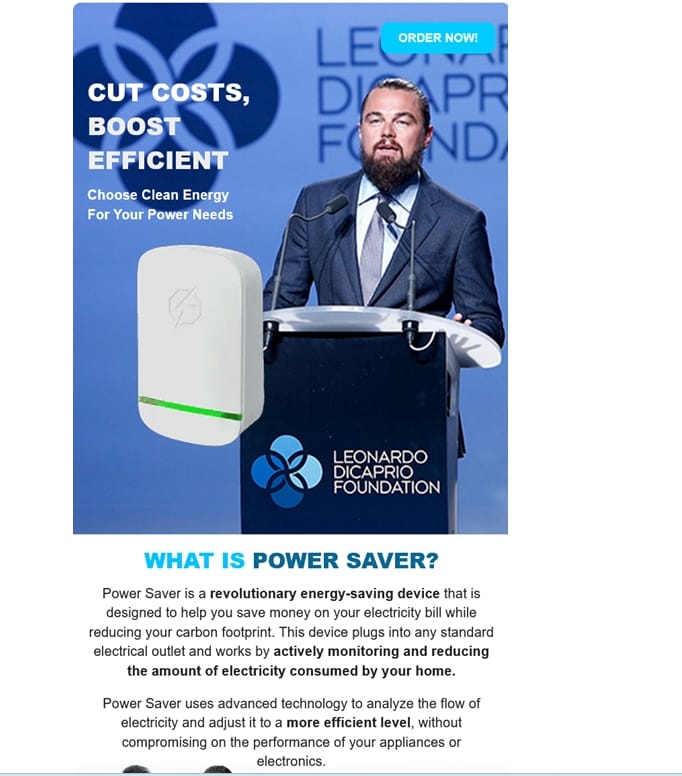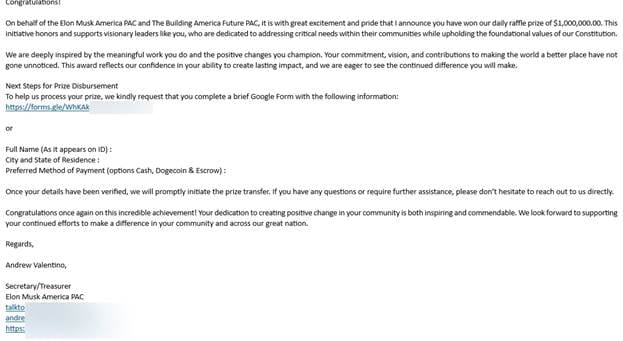Beware of SpaceX and Tesla Stock Giveaway Scams Flooding Inboxes

Note: All product and company names mentioned herein are for identification purposes only and are the property of, and may be trademarks of, their respective owners.
Scams exploiting celebrity names and reputable brand imagery remain alarmingly effective, especially when they impersonate high-profile figures like Elon Musk, or tap into the latest SpaceX achievements or phony cryptocurrency giveaways to trick users into sharing personal or financial information.
Bitdefender’s Antispam Lab researcher, Viorel Zăvoiu, has identified multiple email-based fraud attempts over the past few weeks. Some featured fake energy-saving products, while others touted alleged giveaways or philanthropic donations – all of them using Musk’s name for credibility.
The “Energy Saver” Scam Goes Multi-Channel
Earlier this month, Bitdefender reported a scam campaign promoting a fake energy-saving device endorsed by Musk. Initially distributed via SMS, the scammers have now expanded the campaign to email, pairing manipulated images of Tesla’s CEO with those of Leonardo DiCaprio, another prominent figure known for his environmental advocacy.


The fraudulent emails allege that DiCaprio and Musk have “teamed up” to endorse a groundbreaking product guaranteed to slash electricity bills, and include quotes or references—like “Elon Musk invests in green technology” or “Leonardo DiCaprio fights climate change”— to look legitimate.
The scammers even repurposed the same quote we’ve seen in the previously reported scam.
"Do not pay your electric bill until you read this. As electricity prices continue to rise, I realize that not everyone can afford solar panels, so we wanted to come up with a way that everyone can save tons of money on their electric bill. Hurry up and learn this trick before the power companies get their way and it's gone." – Elon Musk”
The senders use domains that sound official (e.g., @energy-saverXXX.net), but they are not linked to any real company. Recipients are pushed to click on embedded links to learn more about the product. The landing page then requests personal information or even payment details.
Other Scams Featuring Musk, Tesla, and SpaceX Spotted by Bitdefender Antispam Lab
Beyond the “energy saver” ruse, cybercriminals use various hooks to exploit Elon Musk’s and Tesla’s reputations:
Fake “SpaceX and Tesla Stock Giveaway” Campaigns
Phony emails promising “SpaceX stock giveaway” and “free TSLA shares” have been invading inboxes worldwide. The emails claim that recipients have been “randomly selected” to receive a substantial sum of money—in this case $1.5 million—simply for being “lucky.” Official giveaways of that size from a major corporation or individual, if they ever exist, follow highly publicized, verifiable methods rather than targeting unknown recipients one by one. The request to “reconfirm your full details,” such as name, address, mobile number, and occupation, is another red flag. Legitimate philanthropic efforts generally do not ask for personal or financial details through unsolicited emails. What’s even more confusing is that “Musk” invites recipients to contact an Attorney General for instructions via email.

Another scam email claims you’ve been “randomly selected” to receive over 20,000 Tesla shares—worth millions of dollars—simply by replying. It lists Musk’s credentials and net worth to appear legitimate, but authentic Tesla or SpaceX communications do not arrive unsolicited offering huge stock windfalls.


Similar localized versions of this scam are targeting user inboxes in Germany as well:


Phony “Building America Future PAC” Raffle
In this scam campaign, recipients are told they’ve won a daily raffle of $1 million on behalf of something called the “Elon Musk America PAC” and “The Building America Future PAC.” It directs recipients to a Google Form or asks for personal details via email—including your payment method (cash, Dogecoin, or escrow)—to “initiate the prize transfer.” Asking for private information via an unverified Google Form or email is a common scam tactic designed to harvest personal data, prompt victims to pay fees or even access cryptocurrency wallets.

How to Stay Safe
- Verify claims. If an email references a well-known figure or brand, confirm via official websites or social media. When in doubt, check with Bitdefender Scamio to analyze the message for scam indicators.
- Protect personal data. Never provide banking information, passwords, or official IDs in response to unsolicited emails. Legitimate giveaway sponsors won’t demand sensitive details via random email.
- Check links carefully. Hover over hyperlinks to preview their destination. If it leads to an unfamiliar domain or doesn’t match the context, don’t click it. Keep in mind that shortened URLs can mask suspicious links; you can use scam detectors link Bitdefender Scamio and Bitdefender Link Checker to verify for fraudulent or malicious links for FREE.
- Use Security Software. Make sure your devices and security solutions block phishing and fraudulent links.
tags
Author
Alina is a history buff passionate about cybersecurity and anything sci-fi, advocating Bitdefender technologies and solutions. She spends most of her time between her two feline friends and traveling.
View all postsRight now Top posts
How to Protect Your WhatsApp from Hackers and Scammers – 8 Key Settings and Best Practices
April 03, 2025
Outpacing Cyberthreats: Bitdefender Together with Scuderia Ferrari HP in 2025
March 12, 2025
Streamjacking Scams On YouTube Leverage CS2 Pro Player Championships to Defraud Gamers
February 20, 2025
How to Identify and Protect Yourself from Gaming Laptop Scams
February 11, 2025
FOLLOW US ON SOCIAL MEDIA
You might also like
Bookmarks







